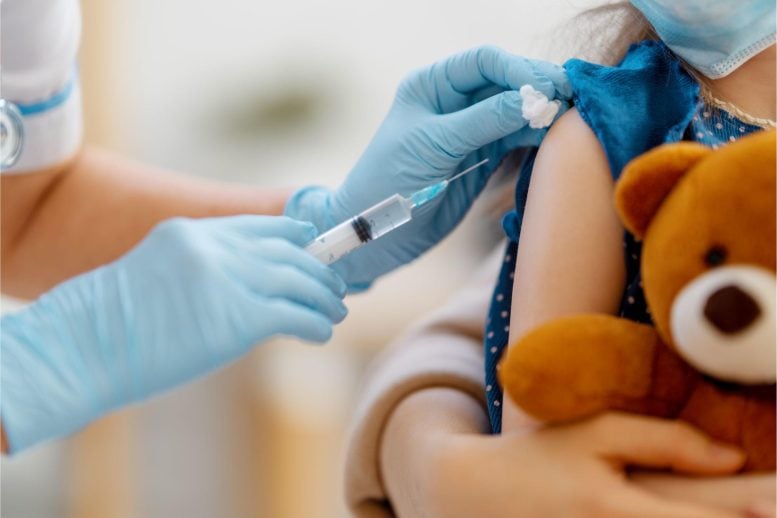COVID-19 Vaccine Offers Relief from Long COVID in Children

New studies suggest that COVID-19 vaccinations provide moderate defence against long COVID in youngsters, particularly among teenagers.
While it has been established that the COVID-19 vaccine decreases children and teenagers' risk of severe acute disease caused by SARS-CoV-2, its efficiency in shielding them from persistent health issues that follow the virus, or “long COVID,” was previously unclear.
A recent endeavor led by the Children’s Hospital of Philadelphia (CHOP), which involved researchers from 17 U.S. health systems, has discovered that the vaccine does indeed offer reasonable protection against long COVID. The vaccine’s impact is notably stronger among teenagers, who face a greater chance of developing long COVID compared to younger children.
The journal Pediatrics published these findings from a large-scale retrospective study today (January 16). The study used electronic health records for the National Institutes of Health’s Researching COVID to Enhance Recovery (RECOVER) initiative analysis.
The extent of long COVID in children has been challenging to accurately determine because symptoms range significantly and the virus's specific impacts are still not well-understood. These symptoms can range from brain fog, trouble breathing, gastrointestinal issues, general pain and fatigue, to more critical conditions like inflammation or cardiac issues.
Leading study author Hanieh Razzaghi, PhD, MPH asserted that no investigations to date have evaluated clinical data from large, varied groups of children on this crucial matter. She added that utilizing clinical data from multiple health care networks enabled the researchers to gather a substantial enough sample of patients to spot the virus’s rare effects and its consequences on children.
For their analysis, the researchers drew from the findings of a vast collaboration of health systems from PCORnet®, for the National Institutes of Health’s RECOVER initiative. This aimed to uncover more about COVID-19’s long-term effects. They evaluated vaccine effectiveness against long COVID in groups of patients aged 5-11 and 12-17, using data from 17 health systems. The vaccination rate was 56% in the group of 1,037,936 children observed.
They found that the rate of probable long COVID was 4.5% among patients with COVID-19, though only 0.7% were clinically diagnosed with it. The estimated effectiveness of the vaccine against probable long COVID was 35.4% and against diagnosed long COVID it was 41.7%, within 12 months of administration. This estimate was higher in teenagers compared to younger children (50.3% vs. 23.8%), and was higher at six months (61.4%), but decreases to 10.6% at 18 months. There appeared to be benefits for children who were vaccinated after recovering from COVID-19, with vaccine effectiveness of 46% against probable long COVID after a subsequent episode of COVID-19.
Study's senior author, Charles Bailey, MD, PhD, viewed these findings as significant data showcasing the vaccine’s protective effects against long-haul COVID. He also hopes that as vaccines are further improved to be more effective against currently existing strains of SARS-CoV-2, their protection against long COVID will also enhance.
Bailey concludes,“These retrospective data provide guidance for additional research into the ways long COVID develops, and how we can better protect children and adolescents.”




